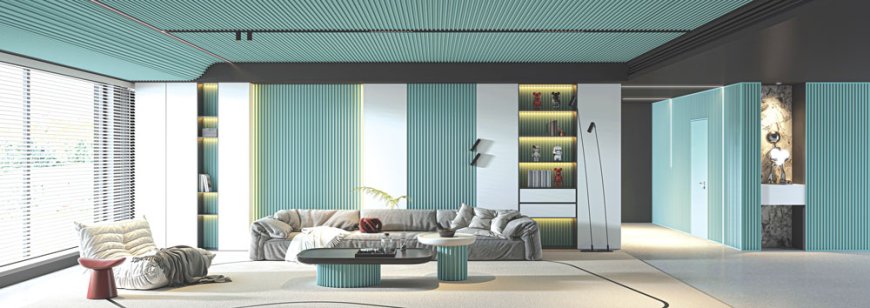Emerging standards and innovations in environmentally responsible building materials

In the dynamic realm of sustainable construction, the focus on environmentally responsible building materials has intensified, prompting the development of innovative standards and practices. This evolution is evident through the increasing adoption of innovative materials and practices that prioritize eco-friendliness, reduced carbon footprints, and overall environmental responsibility. One prominent player in this movement is the emergence of polymer-based wall & ceiling Soffit panels.
Polymer renaissance
Polymer materials, including recycled plastics and biodegradable polymers, have become integral to sustainable building solutions. Their reduced environmental impact compared to traditional materials like concrete and steel is a key advantage, contributing significantly to the reduction of plastic waste and the conservation of valuable resources.

Versatility of polymer wall panels
Polymer wall panels, crafted from recycled plastics, offer architects and builders a versatile and lightweight alternative to conventional construction materials. The ease of installation and the fact they are rust-rot proof makes them a practical choice, for carbon emissions in the construction industry Additionally, these panels are lead-free, with no VOC content while installation unlike Paint, fire-retardant, and waterproof, ensuring enhanced safety and durability.
Ceiling panels: A holistic approach to sustainability
Ceiling panels made from sustainable polymers extend the environmental benefits. They often incorporate recycled content and energy-efficient lighting systems, promoting a holistic approach to sustainability within building interiors. Additionally, these panels contribute to better indoor air quality, with perforation techniques aligning with the growing awareness of health and wellness in built environments.
Facade panels: Aesthetic appeal with environmental responsibility
Facade panels, as a building's protective shield, have a pivotal role in both aesthetics and functionality made out of high-quality engineering-grade polymer. Polymer facade panels enhance a structure's visual appeal while providing durability and UV protection. By utilizing recycled and recyclable polymers, architects and developers can create visually striking facades while minimizing their environmental footprint.
Integration of smart technologies
Beyond their primary applications, integrating smart technologies into polymer panels is a burgeoning trend, enhancing their sustainability credentials. Sensor-equipped panels can monitor environmental conditions, optimizing energy usage and ensuring a more responsive and efficient building envelope. This represents a paradigm shift towards smarter and greener construction practices.
Diversification of sustainable materials
The landscape of sustainable building materials extends beyond polymers, with timber, bamboo, and other renewable resources gaining traction for their low carbon footprint and biodegradability. Green roofs and walls, incorporating living vegetation into building design, contribute to energy efficiency, biodiversity, and improved air quality.
Furthermore, circular economy principles are reshaping the industry's approach to material use. Recycling and repurposing construction waste, including old panels and materials, are becoming standard practices. This circular approach minimizes waste, reduces the demand for new raw materials, and fosters a more sustainable and resilient construction sector.
In conclusion, the emergence of environmentally responsible polymer wall, ceiling, and facade panels marks a significant stride towards sustainable construction practices. As these materials continue to evolve, driven by innovation and a commitment to eco-friendly solutions, the construction industry is poised for a transformative journey towards a more sustainable and resilient future.

Parth Parmar
Director at PARÉ Innovations Pvt Ltd







